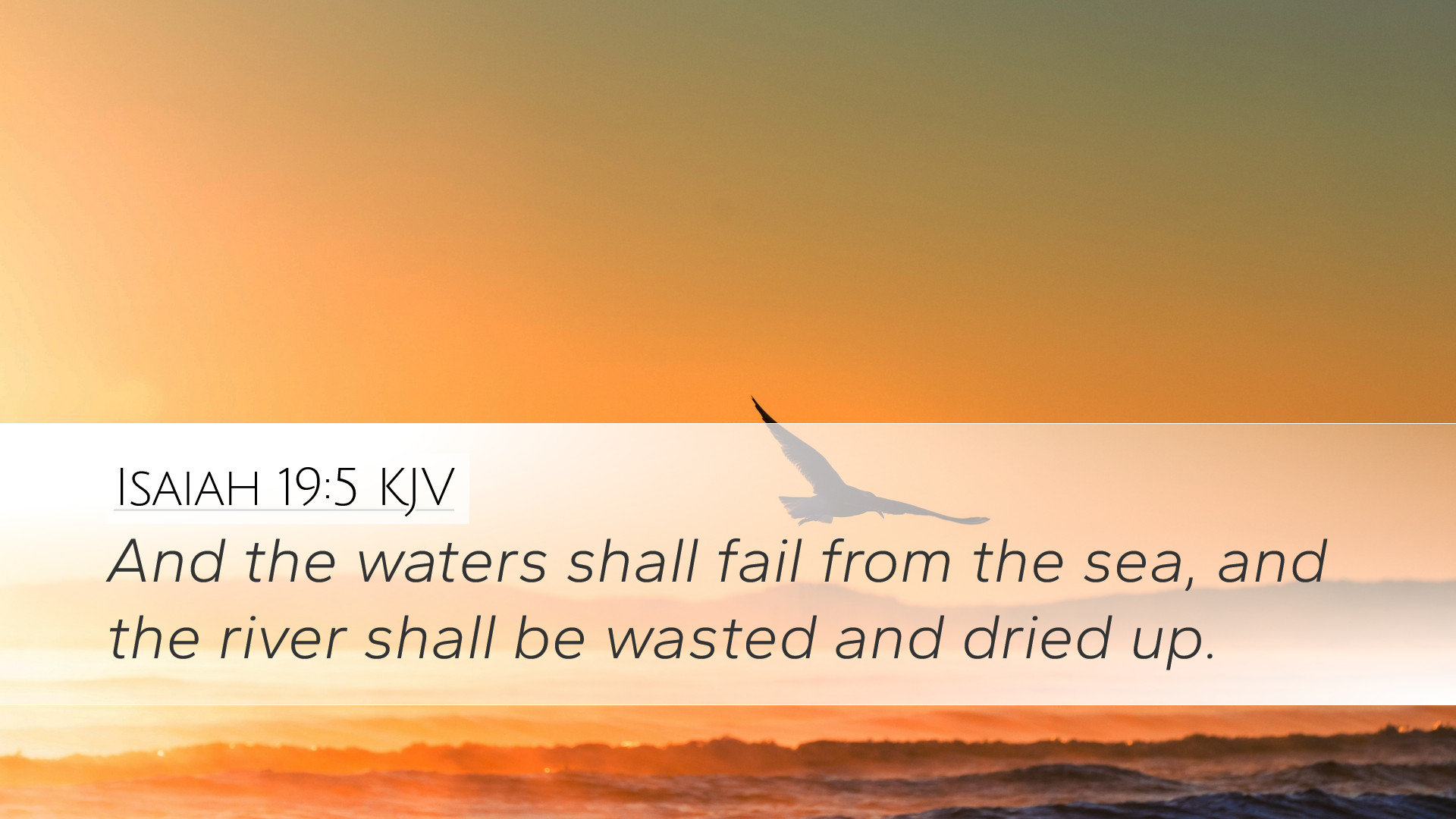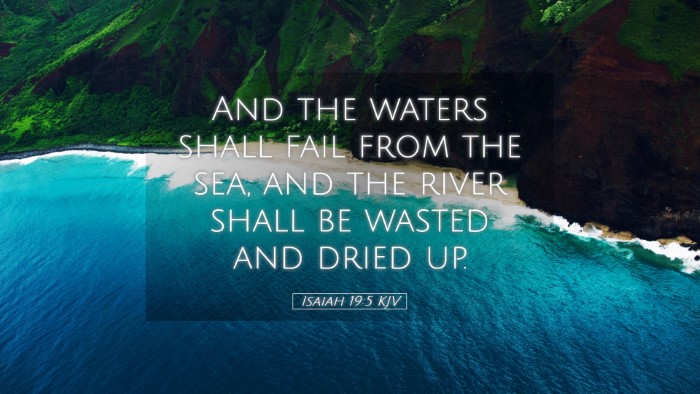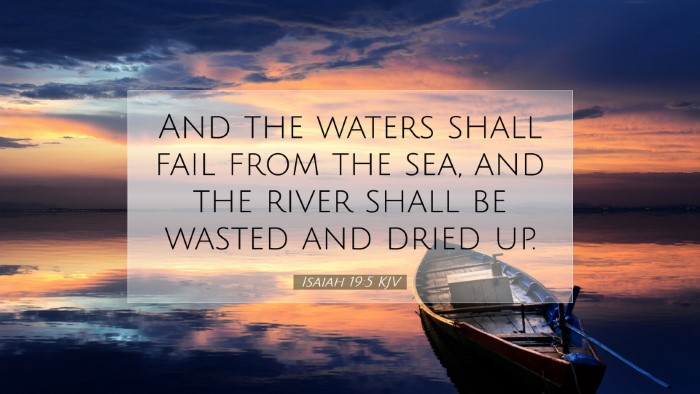Commentary on Isaiah 19:5
Isaiah 19:5 states: "And the waters shall fail from the sea, and the river shall be wasted and dried up." This verse is set against the backdrop of Isaiah’s prophetic declarations concerning Egypt, a nation historically significant to Israel and a major power in the ancient Near East.
Contextual Background
The prophecy concerning Egypt can be seen as a reflection of divine judgment and the broader theme of the sovereignty of God over nations. The drying up of water sources serves as a metaphor for spiritual desolation and the consequences of turning from God.
Both political turmoil and natural disasters are prominent features in this passage, indicating how external circumstances often mirror spiritual degradation. The Egyptians were known for their reliance on the Nile River, which was pivotal for their agriculture and daily life, hence the dramatic symbolism inherent in the drying of their water sources.
Insights from Matthew Henry
Matthew Henry emphasizes the significance of God's judgment upon Egypt, linking it to their idolatry and reliance on false gods, stating that the drying up of the Nile would discredit the idols worshipped by the Egyptians. He notes:
"The reduction of the Nile to dryness will bring their idolatrous worship to nothing, for they trusted in the river as a god."
Henry's commentary suggests that this verse is not merely a prediction of environmental disaster but serves a didactic purpose, illustrating the futility of depending on anything other than the one true God.
Albert Barnes’s Insights
Albert Barnes interprets this passage with an understanding of its prophetic nature, explaining that the drying of the waters symbolizes a significant and troubling change that affects all aspects of life:
"The drying up of the river indicates both literal danger to the Egyptian economy and a figurative warning against their reliance on earthly sustenance instead of divine providence."
According to Barnes, the context suggests a broader theological implication: when nations turn from God, they open themselves to calamity that affects their very sustenance and existence. Barnes also provides a historical context that points to actual events in Egypt’s history where the Nile's flooding and drought have played critical roles.
Adam Clarke’s Interpretation
Adam Clarke delves into the linguistic aspects of the original Hebrew, providing insights into the terms used by Isaiah:
"The term used for 'drying up' is indicative of a complete cessation of that which was abundant, mirroring the spiritual barrenness of Egypt."
Clarke echoes the sentiment of both Henry and Barnes in attributing the drying up of the waterways to a broader vision of divine retribution, suggesting that this was God's means of proclaiming the impotency of Egypt's reliance on natural resources versus spiritual fidelity. He further articulates that:
"In this judgment, we see a warning to all nations who depend on their own resources rather than on God."
Thematic Analysis
Thematically, Isaiah 19:5 encapsulates several critical elements pertinent for both contemporary and historical understandings:
- The Sovereignty of God: This passage reinforces that God is in control over nature and nations alike.
- Idolatry and Dependence on God: The drying of the Nile serves as a metaphor for spiritual dryness and the futility of idolatry.
- Judgment and Mercy: While the prophecy speaks of judgment, it also opens the door to repentance and the hope of restoration.
Application for Today
For pastors, students, and theologians, this passage presents a profound opportunity for reflection on how societal reliance on human systems can lead to spiritual barrenness. In a contemporary context, we are challenged to consider:
- How do we view our resources? Are we looking to God or to our economic systems?
- What is the state of spiritual life in our communities? Are we experiencing spiritual drought?
- What steps can we take to ensure reliance on divine provision?
Conclusion
Isaiah 19:5 serves as a powerful reminder of God's sovereignty and the consequences of turning away from Him. Through the reflections of commentators like Matthew Henry, Albert Barnes, and Adam Clarke, we glean that the drying up of Egypt's waters symbolizes both literal and spiritual implications, ultimately calling us back to reliance on God alone. As we engage with this text, may we seek to ensure that our hope and trust remain firmly rooted in the divine, sustaining us through all of life's tribulations.


